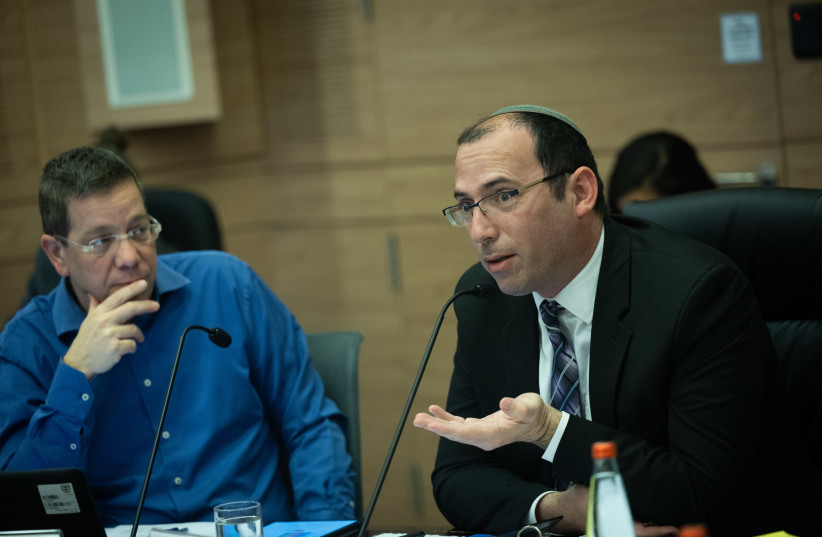The Constitution, Law and Justice Committee began voting on the reservations – revisions or issues – to the judicial reform bill on the Judicial Selection Committee on Wednesday.
Chairman Simcha Rothman said that the votes will continue in the coming days. The committee took breaks throughout the day, including to attend the Knesset plenum.
After receiving thousands of reservations to the bill on Tuesday night, Rothman decided to vote on the reservations in batches grouped by argument, and to vote on them at the end.
He argued that some of the reservations were intended as filibusters, and requested that the opposition direct the committee to the main challenges it wished to discuss.
Some opposition members protested the procedure as a whole, refusing to provide their reservation reasonings and leaving the committee chamber. The chairman gave until Wednesday morning for the opposition to provide reasoning for the challenges.

“We gave all factions the opportunity to focus on more substantial reservations,” said Rothman. “We gave a lot of time, some of the factions chose to use it to discuss the substantial reservations and some did not.”
Labor MK Gilad Kariv argued that it would have been possible to address all the reservations instead of grouping them by argument.
“I’m sorry that we are in this situation, both sides bear a heavy burden for what went on here,” said Kariv. “The discussions were conducted, most of the time, in a way that paid very little attention to our essential statements and did not contribute to creating an atmosphere of deliberation.”
As is often the case with the committee’s dealings with judicial overhaul, opposition and coalition members snapped at one another, and a guest was removed from the chamber.
What changes does the bill make to the Judicial Selection Committee?
The bill, revised by Rothman on Sunday, proposes to change the composition and rules of the Judicial Selection Committee, to increase it from nine to 11 members, while the two Bar Association representatives on the panel would be removed.
Joining the High Court of Justice president, two justices, the justice minister, a cabinet minister and two Knesset members would be another minister, the law committee chairman and two more MKs. Two of the MKs would be from the opposition, and two from the coalition.
Each of the political representative groups would have one female representative, and each member of the groups would be from different factions.
While the previous panel voted with a seven-member approval threshold, the revised committee would vote for a simple majority of six.
The vote threshold would rise to seven for lower court appointments, which would also see the justices temporarily replaced by magistrate and district court presidents.
As the bill to remove the Bar Association from the panel was discussed in the committee, the lawyers’ association held a ceremony celebrating the admission of 75 new attorneys.
“In a democracy, there are disputes, but it is important to remember that the final arbiter is the court and will always be the court. Especially at this time, the Bar Association will continue and do everything in its power to maintain the independence of the High Court and the independence of Israeli judges,” said new Bar Association head Amit Bachar.
